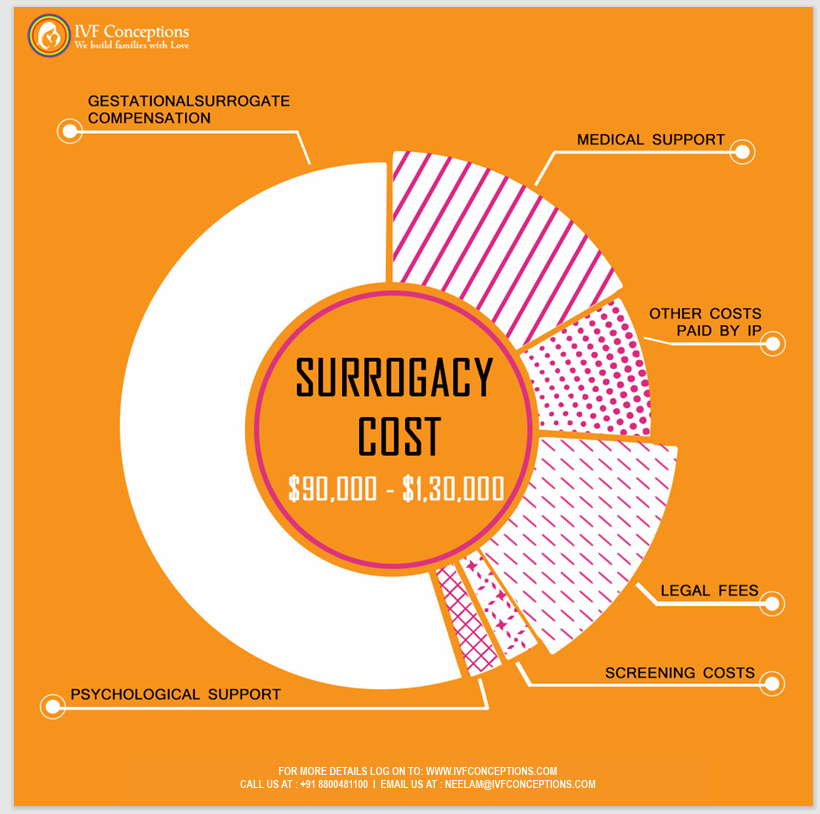What are Surrogate Mother Requirements in 2025

What are Surrogate Mother Requirements For the Surrogacy Process
Surrogate Mother Requirements in 2025 are crucial for ensuring a safe and successful surrogacy journey. Surrogacy involves a woman carrying a pregnancy for another individual or couple, typically when natural conception or carrying a pregnancy is not possible. Meeting medical, legal, and emotional requirements for surrogates helps protect all parties involved.
- Book an online appointment: Get a free online consultation.
- Call\W:+91-8800481100 Email:neelam@ivfconceptions.com
From health screenings for surrogate mothers to legal eligibility for surrogacy, each step is carefully designed to ensure a smooth process. In this blog, we’ll explore the key qualifications for becoming a surrogate mother, including age limits, medical history, and psychological readiness, to help intended parents and surrogates navigate the journey with confidence.
Additional guide for intended parents:
Best surrogacy agency in India
Best surrogacy agency in Mexico
Best surrogacy agency in Colombia
Best surrogacy agency in Argentina
Best surrogacy agency in Georgia
Best surrogacy agency in the USA
Best surrogacy agency in Ukraine
Best surrogacy agency in Armenia

Surrogate Mother Requirements that intended parents should consider for their surrogacy journey.
1. Age and Medical Fitness
The surrogate mother must meet certain age requirements and be in good physical and mental health. Generally, most surrogacy agencies or clinics require the surrogate to be between 21 and 40 years old. This age range ensures that the surrogate is physically capable of carrying a pregnancy to term and reduces the risks associated with pregnancy at an advanced age.
Additionally, the surrogate will undergo a thorough medical evaluation to ensure she is physically fit to carry a pregnancy and does not have any underlying health conditions that could complicate the process.
2. Mental and Emotional Stability
Surrogacy is an emotionally demanding process for both the surrogate and the intended parents. Therefore, the surrogate must undergo psychological screening to assess her mental and emotional stability. This screening helps identify any potential issues that may interfere with her ability to handle the emotional aspects of being a surrogate.
3. Previous Successful Pregnancy
Most surrogacy programs require the surrogate mother to have had at least one successful pregnancy and delivery without complications. This requirement ensures that the surrogate has experience with pregnancy and childbirth, reducing the risks associated with first-time pregnancies.
4. Lifestyle Factors
Surrogacy programs often have specific requirements regarding the surrogate’s lifestyle to ensure the health and well-being of the baby. These requirements may include:
- Abstinence from smoking, drug use, and excessive alcohol consumption
- Maintaining a healthy diet and regular exercise routine
- Compliance with all prenatal care and medical appointments
- Willingness to follow all medical recommendations and restrictions throughout the pregnancy.
5. Legal Considerations
Surrogacy involves complex legal procedures to protect the rights of all parties involved. Before proceeding with surrogacy, it is essential to consult with legal professionals who specialize in reproductive law to understand the legal implications and requirements specific to your jurisdiction.
6. Financial Stability
Surrogacy can be an expensive process, involving medical costs, legal fees, compensation for the surrogate, and other related expenses. The intended parents need to be financially stable and able to meet these financial obligations.
7. Willingness to Establish Open Communication
Successful surrogacy arrangements often involve open and honest communication between the surrogate and the intended parents. This includes discussing expectations, desires, and boundaries, as well as maintaining regular communication throughout the process. Both parties should be willing to establish a respectful and supportive relationship.
These requirements may vary depending on the surrogacy program, country, or state. It is crucial to consult with surrogacy professionals to understand the specific requirements applicable to your situation.
Surrogacy is a complex and deeply personal journey. Understanding and meeting these requirements are essential to ensure a smooth and successful surrogacy experience for all parties involved. It is crucial to work with reputable professionals who can guide you through the process and provide the support needed to fulfill your dreams of parenthood.

Additional resources:
Tips For Surrogate Mothers For Healthy /Pregnancy
How To Find a Surrogate Mother With OR Without Agency
Thinking of Becoming a Surrogate? Ask These 7 Questions First
5 compelling Reasons to Become a Surrogate
Comparing Surrogacy Costs – How much your surrogate mother will cost?
Surrogacy is a remarkable option for individuals or couples who are unable to conceive or carry a pregnancy on their own. However, the cost associated with surrogacy can vary significantly depending on various factors. In this blog post, we will compare the costs of different types of surrogacy and provide an overview of the expenses involved.
Traditional Surrogacy vs. Gestational Surrogacy
There are two main types of surrogacy: traditional surrogacy and gestational surrogacy. It’s important to understand the difference between the two as the costs can vary significantly.
Traditional Surrogacy: In traditional surrogacy, the surrogate mother is genetically related to the child she carries. This is because her own eggs are used for the conception. Traditional surrogacy is less common these days due to the legal complexities and ethical considerations involved.
Gestational Surrogacy: In gestational surrogacy, the surrogate mother has no genetic connection to the child she carries. The intended parents provide the eggs and sperm, or donor gametes may be used. Fertilization takes place through in vitro fertilization (IVF), and the resulting embryo is transferred to the surrogate’s uterus.

Surrogacy Cost Breakdown for Intended Parents
When comparing surrogacy costs, it’s important to consider the following expenses:
- Agency or Matching Program Fees: Many couples or individuals choose to work with surrogacy agencies or matching programs. These organizations assist in finding compatible surrogates and managing the legal and logistical aspects of the process. Agency fees can range from $15,000 to $30,000 or more, depending on the level of services provided.
- Surrogate Compensation: Surrogate mothers receive compensation for their time, effort, and the physical toll of carrying a pregnancy. Compensation can vary significantly but generally ranges from $25,000 to $40,000 or more, depending on the location and individual circumstances.
- Medical Expenses: Medical expenses include the cost of fertility treatments, prenatal care, and the delivery itself. IVF treatments can range from $10,000 to $20,000 per cycle, with additional costs for medications. Prenatal care expenses for the surrogate typically range from $3,000 to $7,000.
- Legal Fees: Surrogacy involves numerous legal procedures to protect the rights and responsibilities of all parties involved. Legal fees can vary depending on the complexity of the process and the location, but they commonly range from $5,000 to $10,000 or more.
- Psychological and Support Services: Surrogates often require psychological counseling or support services to navigate the emotional aspects of the process. The cost for these services can range from a few hundred to several thousand dollars.
- Insurance: Insurance coverage for surrogacy can vary greatly depending on the surrogate’s current insurance plan. It’s important to understand the insurance policy and any additional coverage that may be required. In some cases, intended parents must obtain surrogate-specific insurance, which can range from $5,000 to $20,000 or more.
What is independent surrogacy and you can lower surrogacy costs with it?
Independent surrogacy, also known as private surrogacy or non-agency surrogacy, refers to a surrogacy arrangement that is facilitated without the involvement of a surrogacy agency. In independent surrogacy, the intended parents and the surrogate mother find each other and negotiate the terms and conditions of the surrogacy agreement directly.
In independent surrogacy, the intended parents and the surrogate may connect through personal networks, online platforms, support groups, or other means. They are responsible for screening and selecting each other, as well as handling the legal, medical, and financial aspects of the surrogacy process. This includes creating and signing a surrogacy agreement, arranging medical procedures and appointments, and coordinating compensation and expenses.
Here are a few key points to consider about independent surrogacy:
- Direct Communication: In independent surrogacy, the intended parents and surrogates work together to establish open lines of communication. They can directly discuss expectations, desires, and concerns, providing an opportunity to build a relationship based on trust and mutual understanding.
- Cost Considerations: Independent surrogacy may have lower overall costs compared to agency-assisted surrogacy as it eliminates agency fees. However, it is important to consider that independent surrogacy still involves expenses such as compensation for the surrogate, medical costs, legal fees, psychological support, insurance, and other related expenses. It is crucial to create a comprehensive budget and plan for these costs.
- Legal Considerations: Surrogacy laws vary by jurisdiction, and it is important to ensure compliance with the legal requirements of the chosen location. In independent surrogacy, the intended parents and surrogate are responsible for seeking legal advice and guidance to navigate the legal aspects of the process, including drafting and executing a surrogacy agreement, establishing parental rights, and obtaining necessary legal documentation.
- Risks and Potential Challenges: Independent surrogacy may involve additional risks since it lacks the support and guidance provided by surrogacy agencies. It is vital to thoroughly screen the surrogate, assess any potential medical or psychological risks, and ensure proper legal representation throughout the process.

International Surrogacy Cost
Surrogacy costs can vary depending on the country where the surrogacy arrangement takes place. Some countries have lower costs but may also have different legal and ethical considerations. It’s important to research and understand the laws and regulations of the chosen country, as well as any potential travel and accommodation expenses for international surrogacy.
More Resources to Read:
Infertility Treatment and Surrogacy Process
9 Factors To Improve IVF Pregnancy Rate
International Surrogacy Options Worldwide
Surrogacy Guide for Surrogate Mothers
Conclusion
Surrogacy costs can vary significantly depending on various factors such as the type of surrogacy, location, agency fees, medical expenses, legal fees, and insurance. It is crucial to thoroughly research and consider all the associated costs and financial implications before embarking on the surrogacy journey.
If you’d like to learn more about IVF, Egg Donation, or surrogacy services globally, check out the rest of our website at Complete Surrogacy Agency. We offer legally secure and affordable surrogacy consulting services for FREE.
For more resources on IVF and Surrogacy, browse our other web page- IVF Conceptions.
For more resources on IVF and Surrogacy, browse our other web page- Georgia Surrogacy Agency.
Complete Surrogacy: Your Trusted Partner in International Surrogacy
At Complete Surrogacy, we have over 15 years of experience in international surrogacy, guiding 4,000+ intended parents worldwide. We provide safe, ethical, and affordable surrogacy solutions for single parents, LGBTQ+ couples, and heterosexual couples.
As members of EFS and ESHRE, we adhere to the highest ethical and professional standards. Our expert team is committed to providing accurate, compassionate, and transparent guidance, ensuring a legally secure and smooth journey to parenthood.
Let us help you build your family with trust, care, and integrity.
Get in touch for one FREE Surrogacy Consultancy!
Our team includes experts from diverse backgrounds with leading reproductive attorneys, professionally trained top fertility doctors, former surrogacy case managers, experienced and kind surrogate mother and egg donor coordinators, mental health professionals specializing in infertility counseling, and a logistic support team to assist you in your chosen surrogacy country.
References used:

Author Bio: Neelam Chhagani is an International Surrogacy Expert with 15 years of experience in the fertility and surrogacy domain. As the founder of IVF Conceptions and Complete Surrogacy, she has guided over 4,000 intended parents worldwide on their surrogacy journey to parenthood. Recognized as a trusted authority, she specializes in holistic infertility solutions and third-party reproduction consulting.
Holding an MA in Counselling Psychology and a PGD in Mental Health, Neelam is a proud member of the European Fertility Society (EFS) and the European Society of Human Reproduction and Embryology (ESHRE). She is also a leading surrogacy blogger, providing valuable insights into ethical and practical surrogacy solutions.
Since 2010, committed to supporting ALL family types, Neelam has been passionate about helping intended parents grow their families with compassion, integrity, and a focus on secure and affordable surrogacy options Globally.
Learn more about Neelam:
https://www.ivfconceptions.com/neelam-chhagani-surrogacy-consultant/
https://www.linkedin.com/in/neelam-chhagani-92892229/















I was introduced to Neelam by a friend who worked with Neelam for surrogacy. Neelam is absolutely wonderful. I am a single male and the journey to fatherhood is not that easy. Neelam connected me to a program ideal for my circumstances. She was with me throughout the pregnancy providing advice and guidance along the way. I am so grateful I found her and am thrilled today that I have a beautiful daughter. I highly recommend Neelam to anyone who is on a journey to become a parent. Having a child has changed my world for the better. I wish others success with their own journey and recommend you connect with Neelam to find a path that is best for you.
SA (USA)